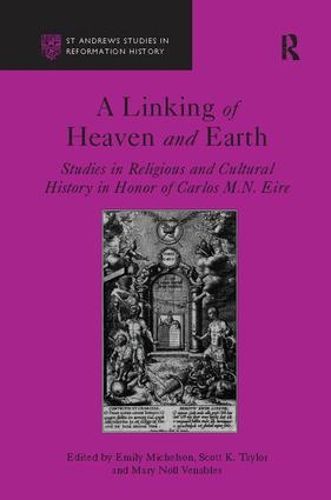Readings Newsletter
Become a Readings Member to make your shopping experience even easier.
Sign in or sign up for free!
You’re not far away from qualifying for FREE standard shipping within Australia
You’ve qualified for FREE standard shipping within Australia
The cart is loading…






The Reformation of the sixteenth century shattered the unity of medieval Christendom, and the resulting fissures spread to the corners of the earth. No scholar of the period has done more than Carlos M.N. Eire, however, to document how much these ruptures implicated otherworldly spheres as well. His deeply innovative publications helped shape new fields of study, intertwining social, intellectual, cultural, and religious history to reveal how, lived beliefs had real and profound implications for social and political life in early modern Europe. Reflecting these themes, the volume celebrates the intellectual legacy of Carlos Eire’s scholarship, applying his distinctive combination of cultural and religious history to new areas and topics. In so doing it underlines the extent to which the relationship between the natural and the supernatural in the early modern world was dynamic, contentious, and always urgent. Organized around three sections - ‘Connecting the Natural and the Supernatural’, ‘Bodies in Motion: Mind, Soul, and Death’ and ‘Living One’s Faith’ - the essays are bound together by the example of Eire’s scholarship, ensuring a coherence of approach that makes the book crucial reading for scholars of the Reformation, Christianity and early modern cultural history.
$9.00 standard shipping within Australia
FREE standard shipping within Australia for orders over $100.00
Express & International shipping calculated at checkout
The Reformation of the sixteenth century shattered the unity of medieval Christendom, and the resulting fissures spread to the corners of the earth. No scholar of the period has done more than Carlos M.N. Eire, however, to document how much these ruptures implicated otherworldly spheres as well. His deeply innovative publications helped shape new fields of study, intertwining social, intellectual, cultural, and religious history to reveal how, lived beliefs had real and profound implications for social and political life in early modern Europe. Reflecting these themes, the volume celebrates the intellectual legacy of Carlos Eire’s scholarship, applying his distinctive combination of cultural and religious history to new areas and topics. In so doing it underlines the extent to which the relationship between the natural and the supernatural in the early modern world was dynamic, contentious, and always urgent. Organized around three sections - ‘Connecting the Natural and the Supernatural’, ‘Bodies in Motion: Mind, Soul, and Death’ and ‘Living One’s Faith’ - the essays are bound together by the example of Eire’s scholarship, ensuring a coherence of approach that makes the book crucial reading for scholars of the Reformation, Christianity and early modern cultural history.